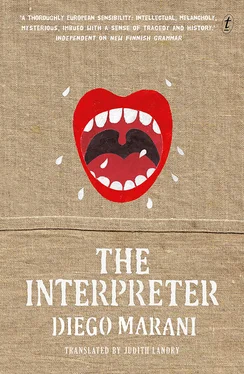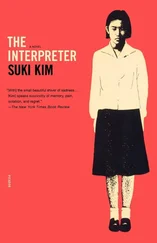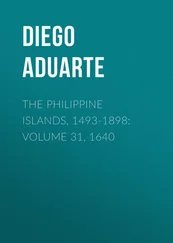The windows had a view of the cathedral spires, soaring above the city lights. Running his hands through his thick white hair in front of the mirror, Burke straightened his black tie and added:
‘You can be my guest there if you like. The Ammersee is lovely at this time of year — the storks will soon be back, and everything is white with hawthorn.’
At the restaurant I’d sipped slowly at the bisque de homard , allowing its warmth to penetrate my every fibre, almost weeping as I savoured the fine French wine. I was no longer used to eating, and couldn’t manage very much. My life, I realised, had been reduced to a minimum, but a tiny flame still flickered within me and now it was being kindled anew. My appetite was slowly coming back, my blood was flowing more strongly through my veins; my body was shuffling off its listlessness and, as it did so, I could feel my mad desire to track down the interpreter regaining strength. In fact, it had never entirely left me; it was a physical need, a call which was reasserting itself and demanding to be obeyed.
Klaus Burke drew deeply on his Havana cigar and looked at me through the smoke.
‘You may wonder why a man like me should bother spending his time giving money to those down-and-outs.’ I nodded distractedly, my body tensing in sudden fear of an imminent convulsion. My host paused for a moment, lost in thought, then carried on:
‘You see, most men get through their lives as best they can, and no one expects anything more of them. But then there are people like us; some inscrutable higher power has decreed that we have a mission on this earth!’
I jumped, feeling he’d read my thoughts, but my host continued imperturbably:
‘Ever since I first set foot in a factory, aged eleven, everything I’ve touched has turned to gold. The wealth just piles up — I’m the living embodiment of the German economic miracle. Every enterprise I’ve embarked on has flourished, each brand I’ve invested in has multiplied ten, a hundred, a thousand-fold. I’ve discovered markets no one had dreamed of, invented others which seemed to have no raison d’etre, created absurd desires and satisfied them with my factories. Success is my default setting. Yet I myself was born of ruination: I am a child of wretchedness, of a death so harrowing it knows no solace. I carried my mother’s charred body through the streets during the bombing of Hamburg. My father has been dead for sixty years, and yet I see him still: at Hamburg University, in a jar of formalin in the faculty of natural sciences. His right eye is still open, and under the three day’s growth of beard you can still see the bluish mark I made when I embraced him with inky fingers, as the English planes began to bomb the city.’
He tapped the ash off his cigar and paused for a few moments, looking at me with a solemn, thoughtful expression. I sensed that he was weighing up the words he was about to speak.
‘I wanted to escape the rubble of the Hamburg streets, where the charred remains of men and animals and buildings lay mingled in a single clammy mush; I wanted to put the unquenchable flames of those fearful nights out of my mind. I wanted to redeem myself, to win, to build — in a word, I wanted to forget. But destruction seeks me out, stirs up a mocking yearning for the death I have escaped. For sixty years I’ve been repaying fate for the price of my survival, but nothing will suffice to rid me of my guilt, and I’m too base to go back alone to the pit out of which I’ve climbed. So I assuage my remorse by paying those desperadoes to shatter the windscreens I produce, to set fire to my supermarkets; that way at least some portion of me will be destroyed. Let them hammer away, break bones, smash windows, wreck the city! I gain reassurance from their empty futures, their desperation, the death they carry with them. They leave open the door for me — for my return.’
So saying, Klaus Burke shook himself, as though a shiver had run down his spine; his expression suddenly distant and cold, he continued sitting there stock-still, almost as though he’d lost consciousness, then began to breathe heavily. Beads of sweat pearled on his forehead and he started blinking rapidly. Then he regained his composure, beckoned the waiter with a flick of his wrist and ordered a cognac; only after he’d taken a few sips did his breathing return to normal.
‘I am seeking a death that is worthy of me, Mr Bellamy. I can’t resign myself to dying in my bed, eaten up by cancer or old age. Nor do I want to yield to the lure of some elaborately planned suicide. I want to die with a curse upon my lips, to re-experience the horror of that summer’s night. Only that way will I have paid my dues; only that way will I be free. Such is my mission!’
He balanced his cigar on the edge of the ashtray, straightened up in his armchair, placed his hands around his glass and leaned towards me:
‘And you, dear friend — what form of destruction are you after?’
I told him my story; puffing on his cigar as he heard me out, Klaus Burke seemed both incredulous and amused. I showed him the Romanian newspaper cuttings about the robberies, the interpreter’s list, and Stauber’s too, with the four mysterious handwritten names; I showed him Tibor Preda’s passport with my photograph. I described the therapies used in Dr Barnung’s clinic and my chilling discovery of the whistling men in Odessa. When at last I fell silent, my host sighed deeply and looked at me with new respect.
‘Mr Bellamy, I’m full of admiration! If there were a museum of incredible destinies, yours would be worthy of a place of honour; and, may I say, I cannot imagine any other man confronting such adversities with anything like your courage and tenacity!’
I felt flattered. I had received many compliments during the course of my life — on my commitment to study, on my capacity for hard work — but never before had I been praised for my sheer ill-fortune. Thinking over Klaus Burke’s words, I realised that I had indeed become a museum piece, or rather perhaps a fairground curiosity, a freak to be exhibited as a warning to those who do not believe in the wayward power of fate.
‘But you must take me to this clinic, Mr Bellamy! I’ll have myself admitted — I too would like to be subjected to his diabolical experiments!’ Burke said excitedly.
‘I don’t think there’s anything left of Dr Barnung here in Munich; I’ve been to look for him in his clinic on several occasions. There’s no longer any sign of the patients who were there with me; they must all have become whistling men, locked up in some godforsaken madhouse!’
My host looked disappointed; he flicked at his cigar and sat there in silence, watching the wreath of smoke as it spiralled upwards through the air.
Over the days that followed, Burke entertained me royally at his villa on the Ammersee, showed me his paintings and the valuable antiquarian books he had in his library. We visited the stud farm where he bred racing horses, and went hunting on the large estate he owned on the lake’s edge. The woods, the green meadows, the view of distant blue mountains, the quiet, familiar waters of the lake — all were a balm to my troubled spirit. As if by a miracle, the sky cleared and a weak sun emerged to warm the cold, damp earth. The delicate colours of the countryside, the long periods of sleep in which I could now indulge, the unfamiliar landscape, all gave me the impression that I was observing the world from a safe and peaceful haven. The tender light of spring returned, lingering to the west on the bark of trees now tinged with green, on the stone walls of distant farms. In the morning I would look out of the window to see the dawn light merging with the lake, reflected rose-pink in the network of canals, and I would imagine that I could see the white ferryboat plying the waters of another lake, I could even hear its hooter, and the muffled sound of summer music. I would stare fixedly at that tranquil scene until the sun, rising behind the trees, dispelled the fleeting mirage with the dazzle of its rays.
Читать дальше












